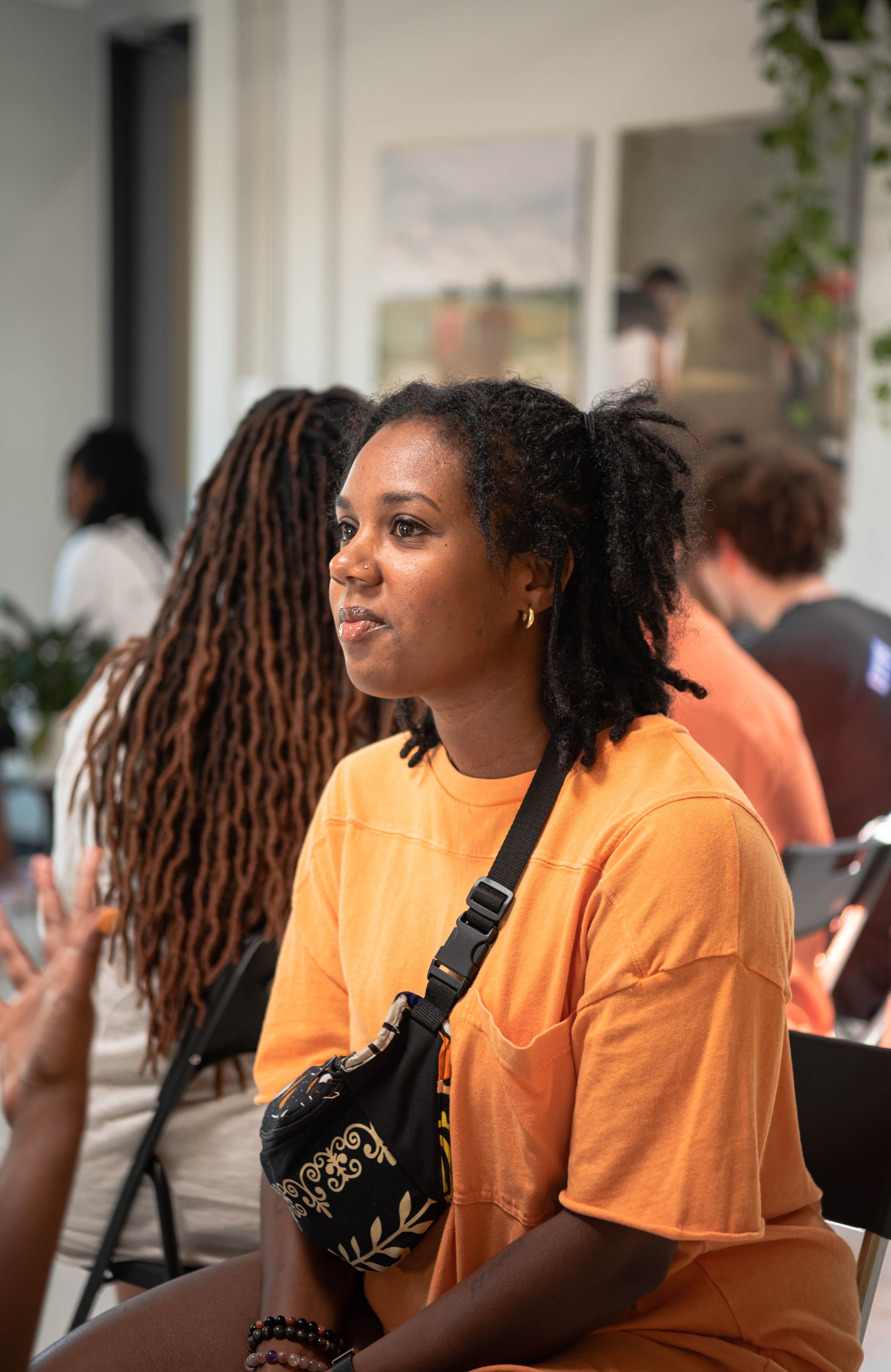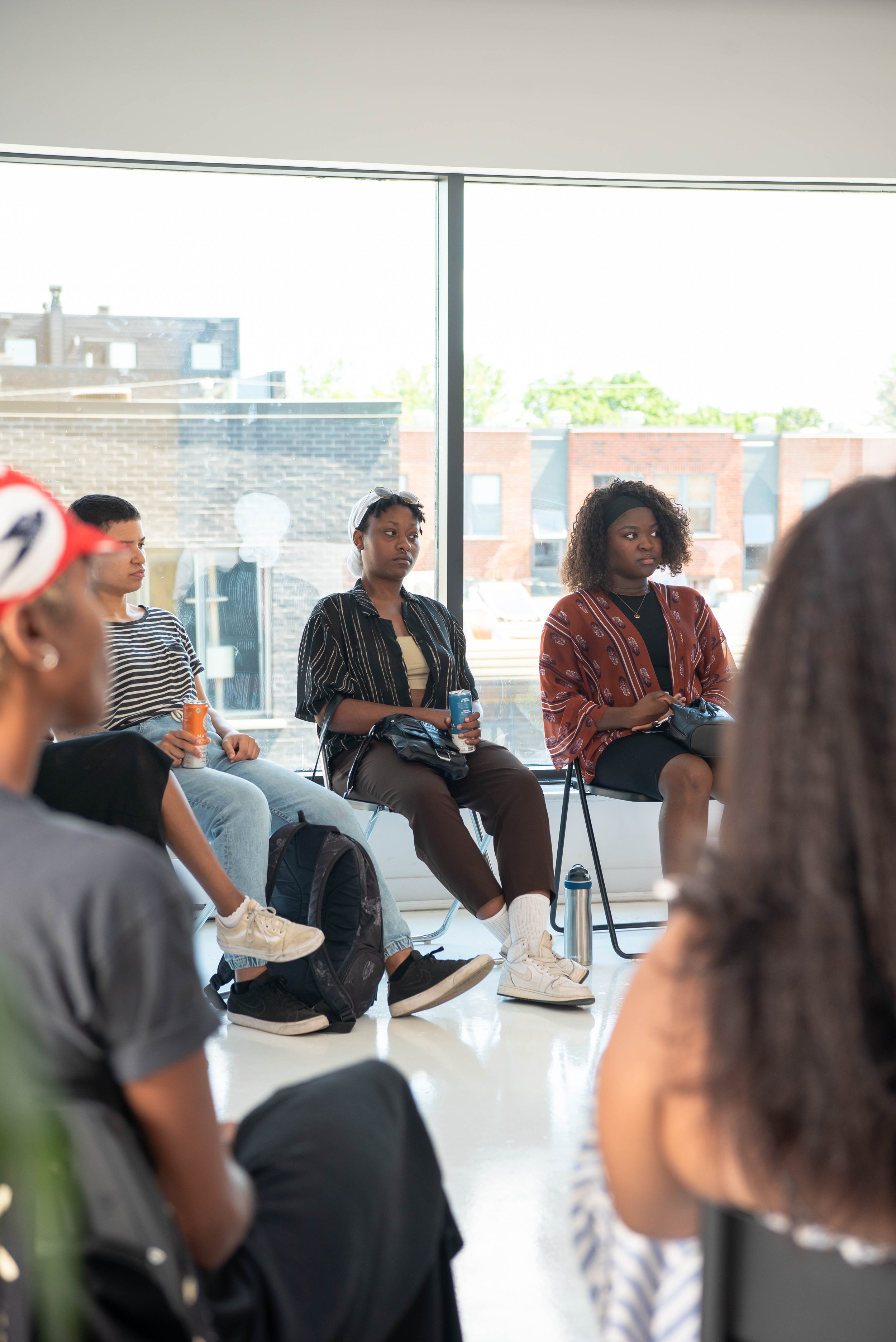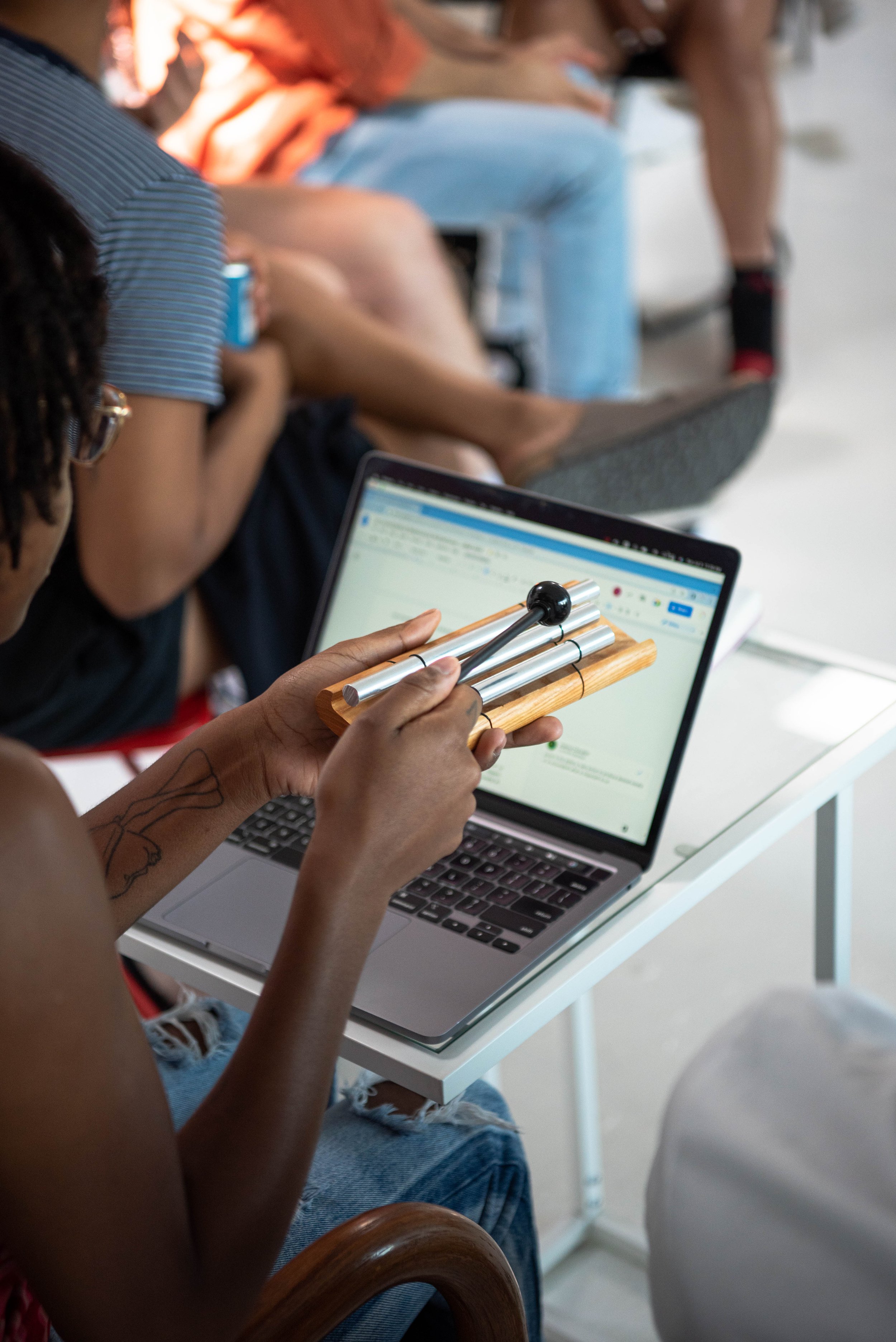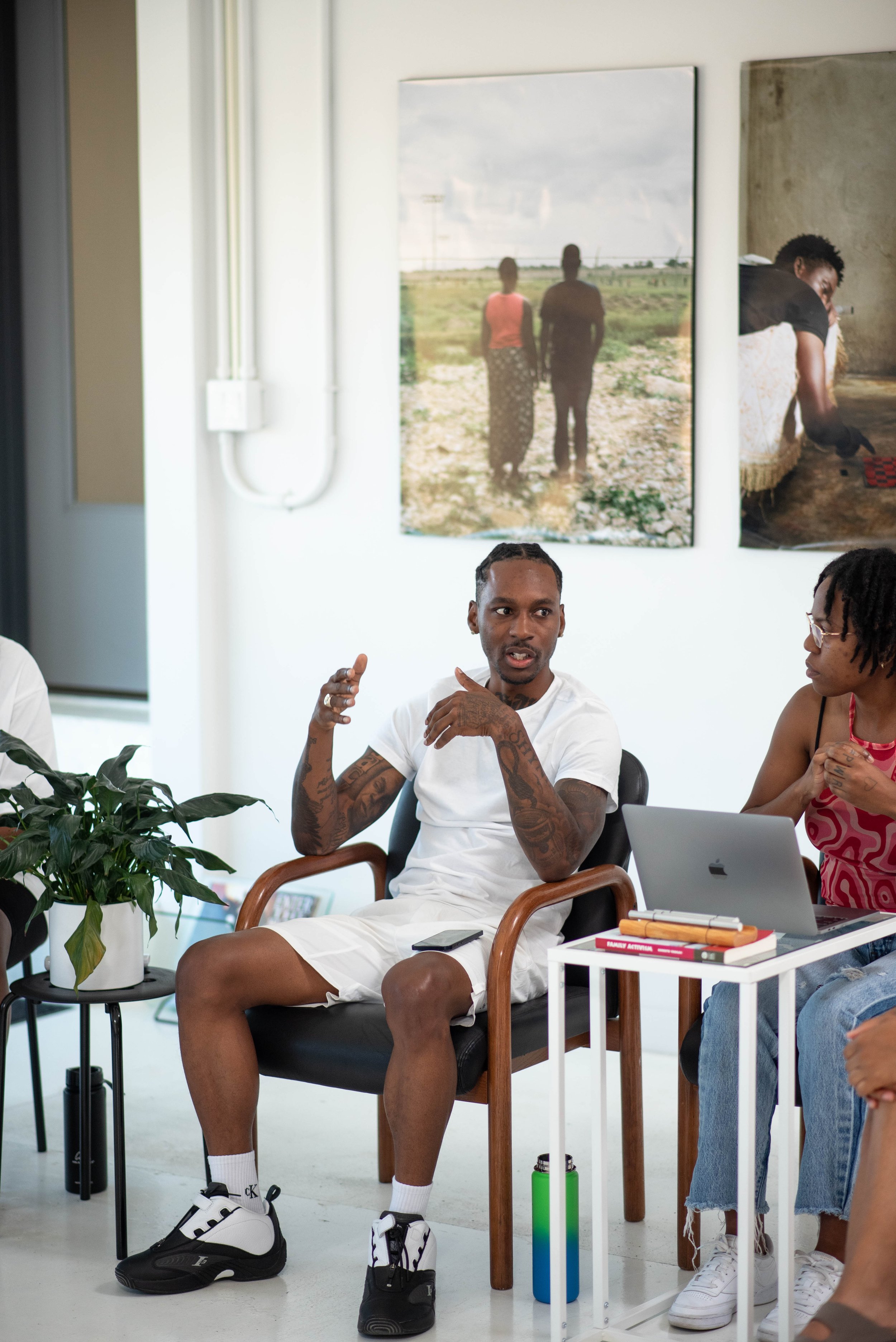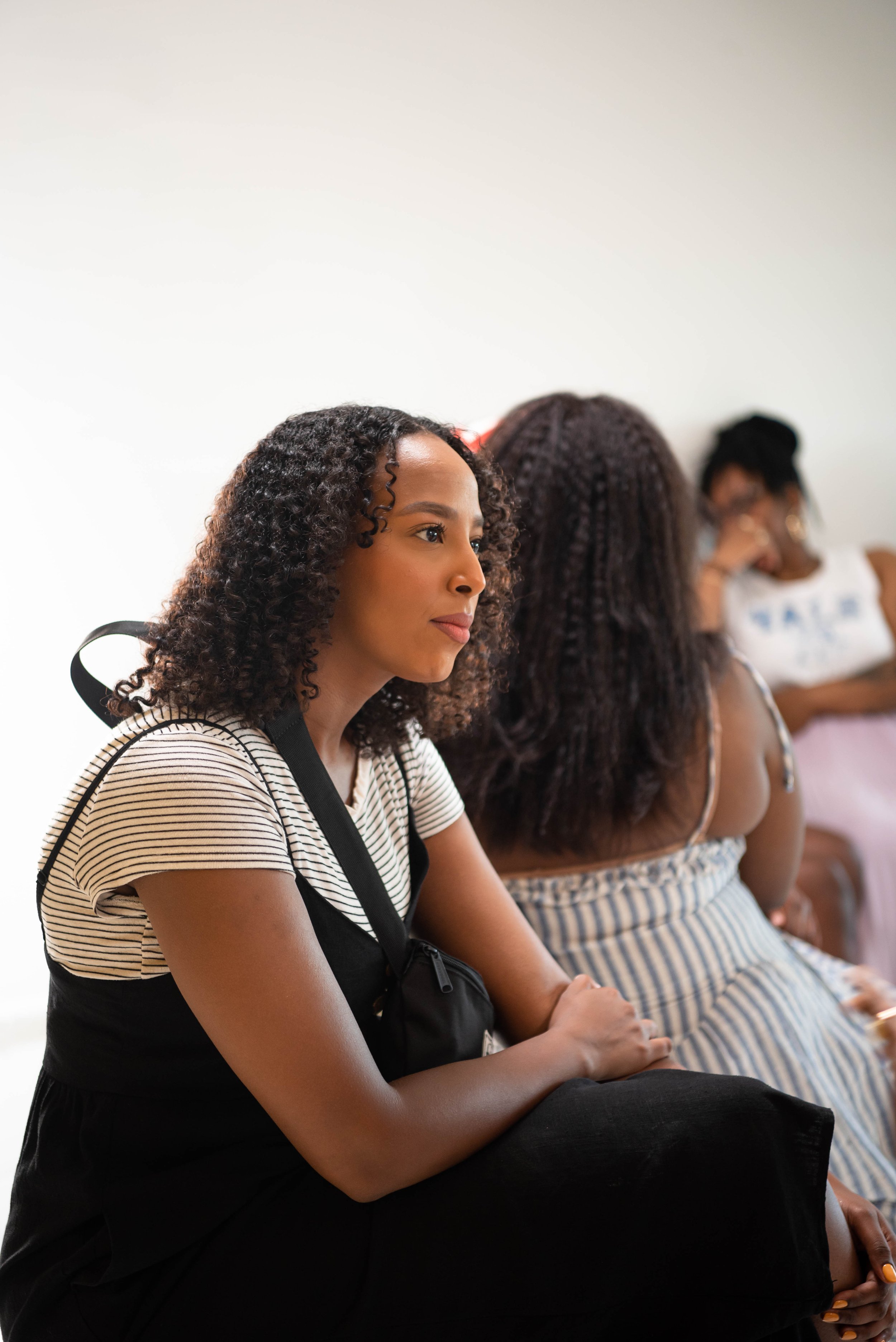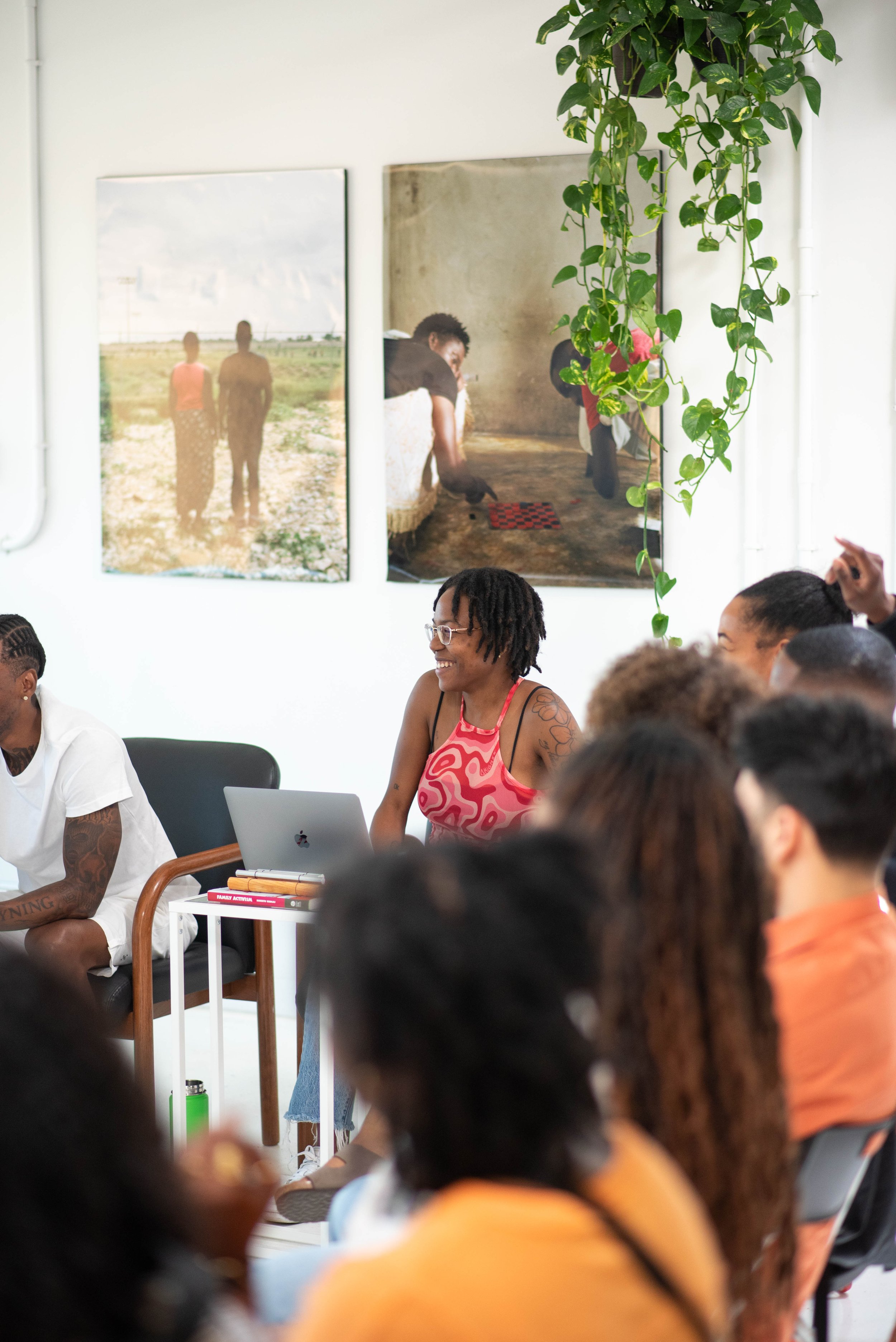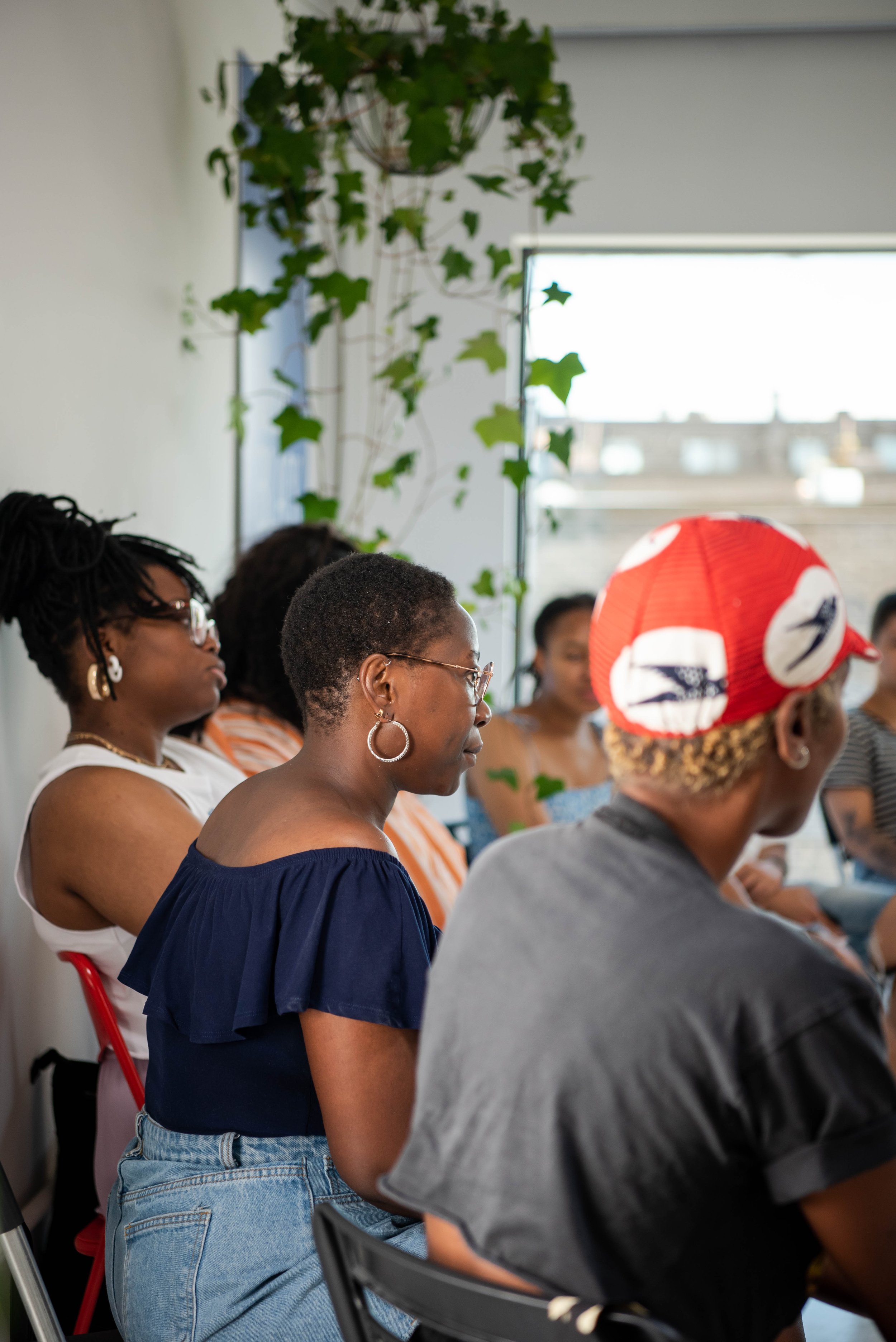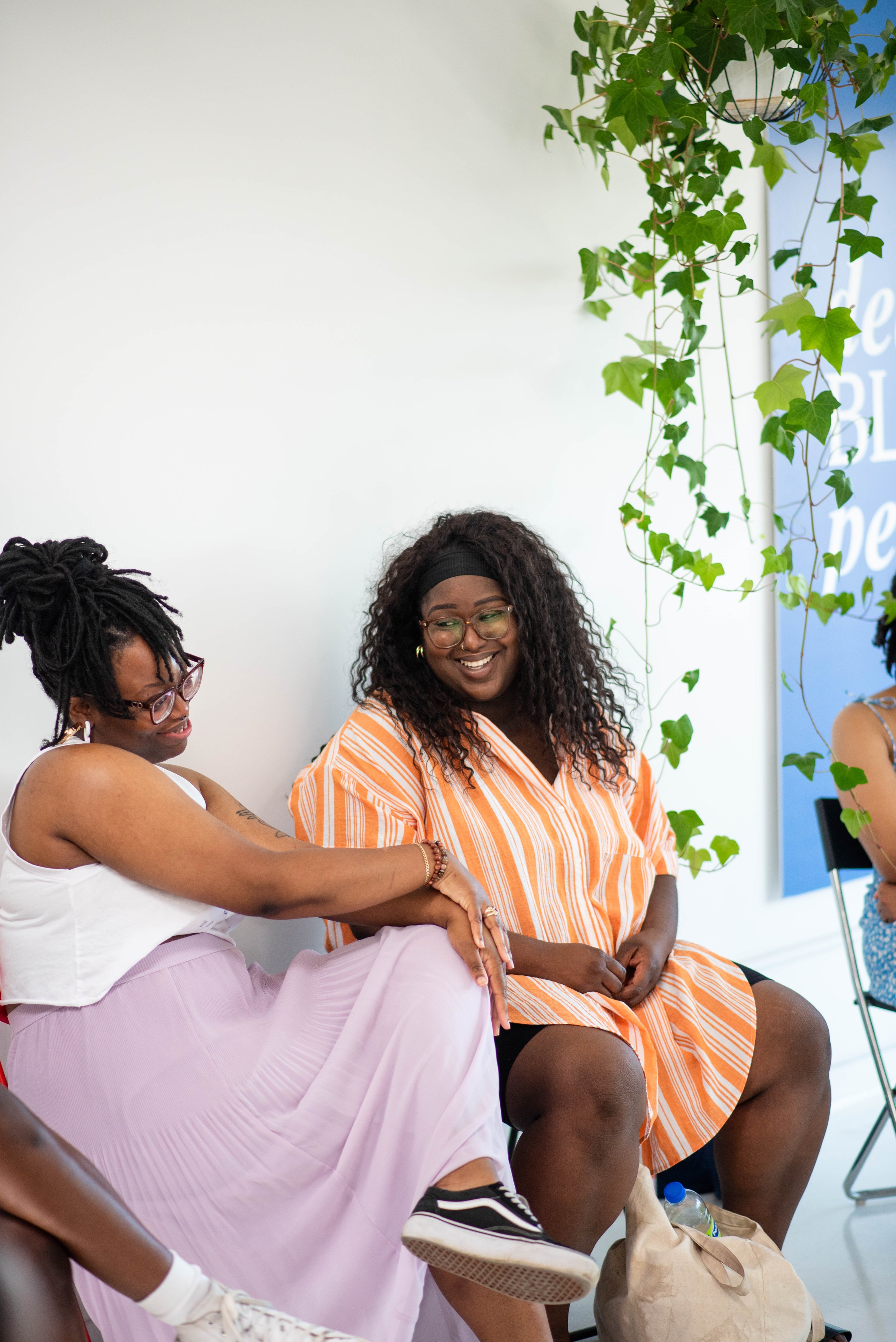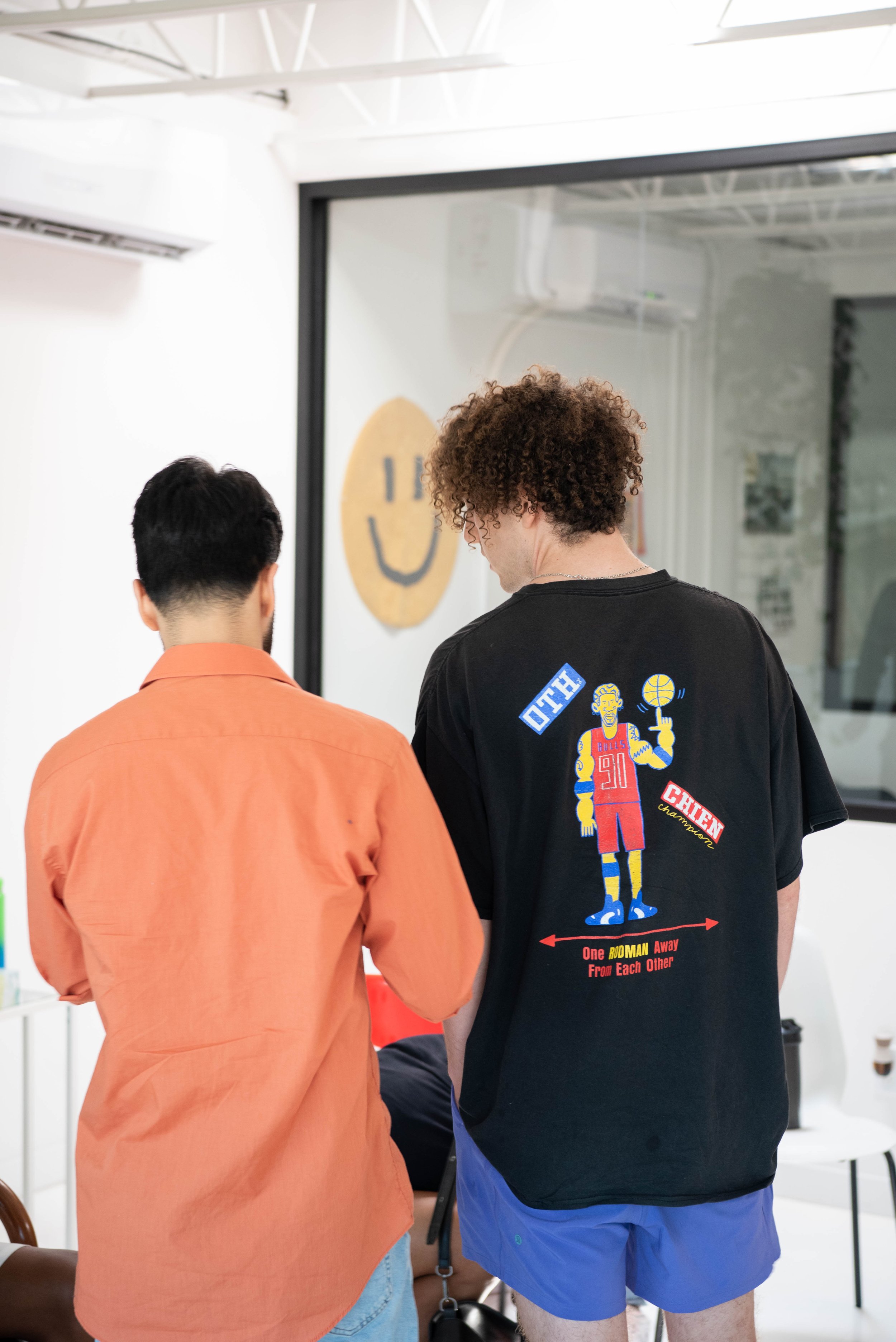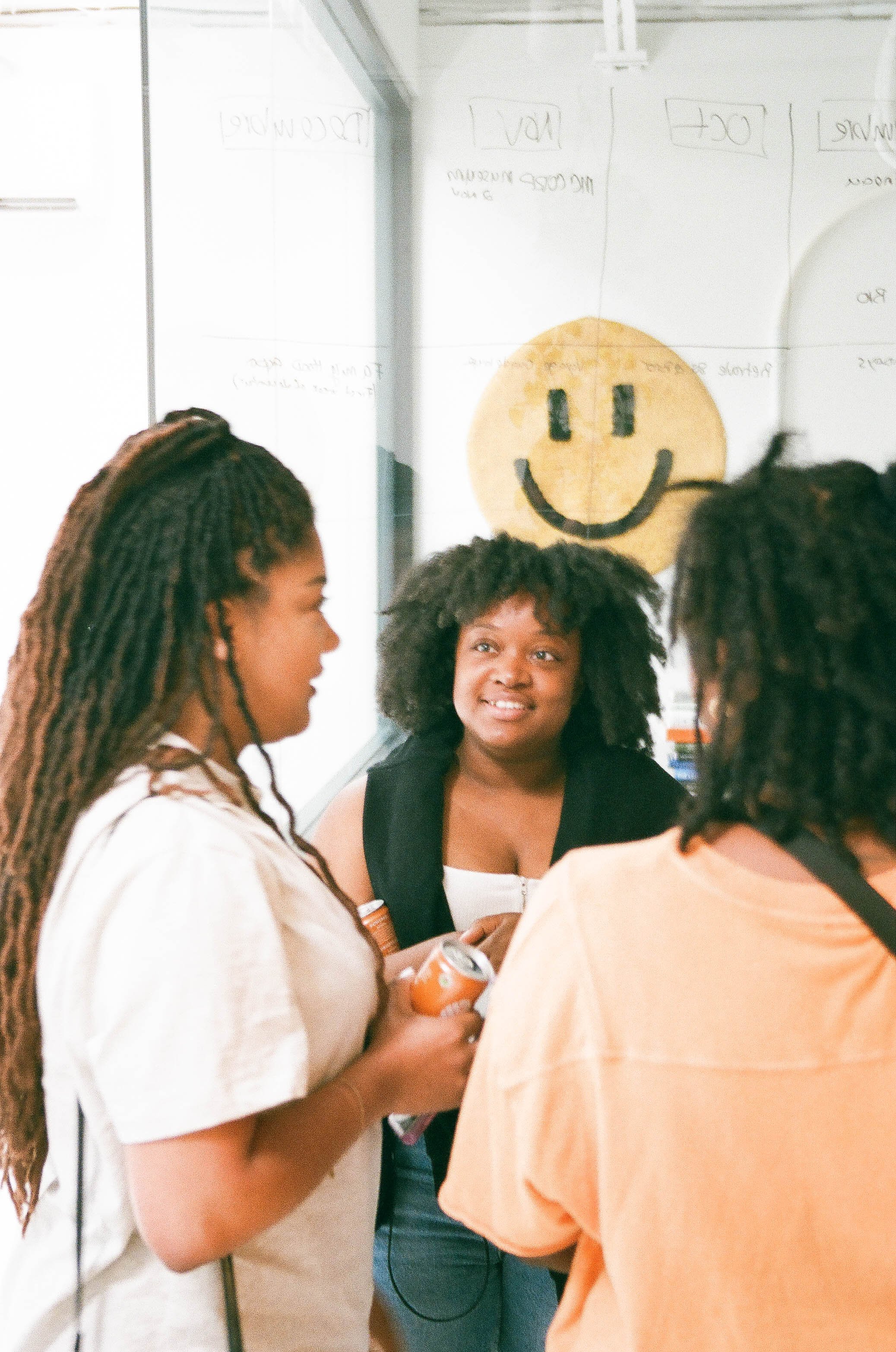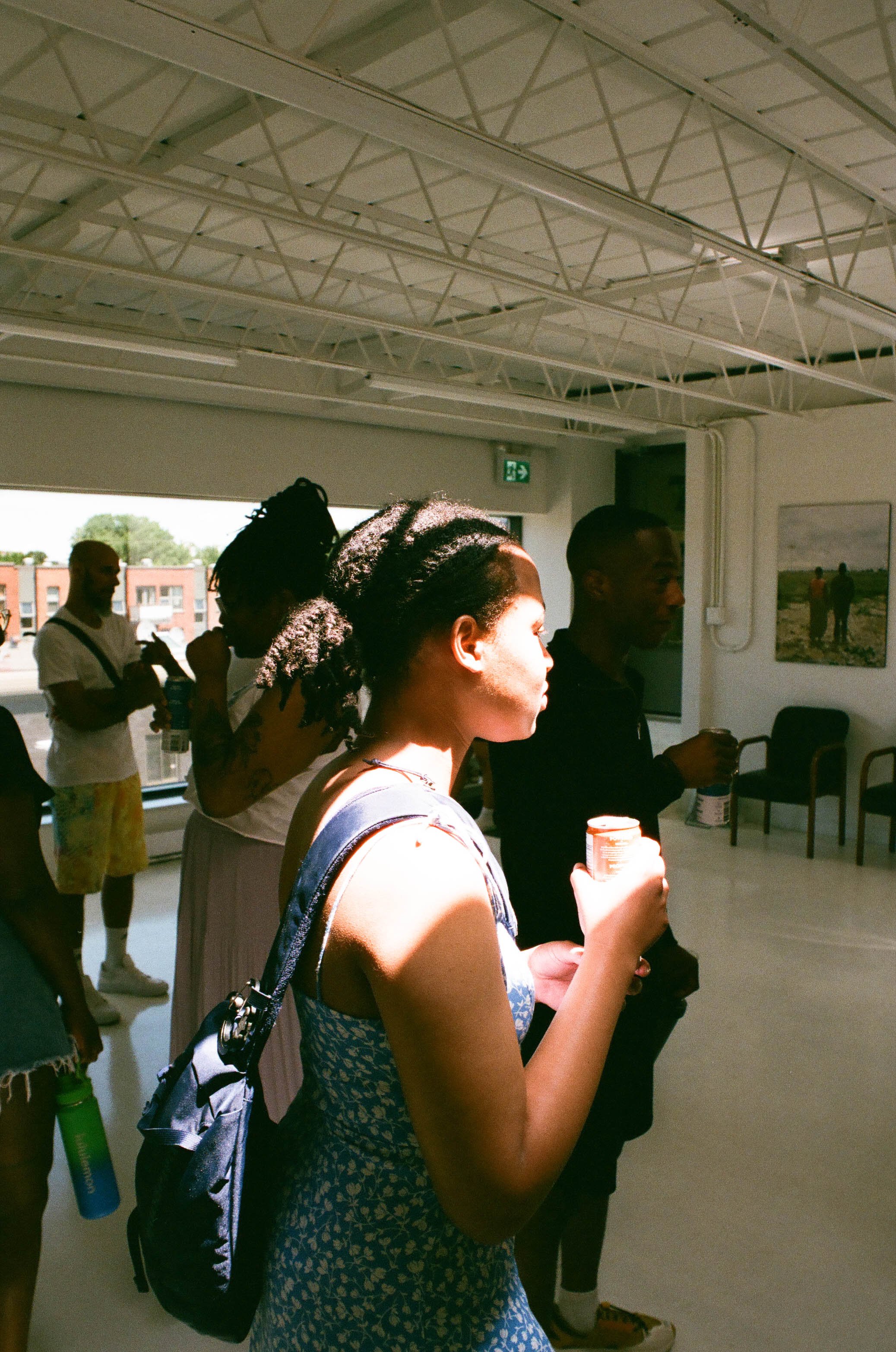What is family to you?
When we think of family, we can think of many things. We can interpret it as the nuclear family, like parents and children or of an extended family like cousins, uncles, aunts and grandparents, or even as a group of people who share the same characteristics. We began the conversation with the question, "what is family to you?" as we know, you can get an array of answers. Pulling from the insightful book by Roberto Vargas, Family Activism, we discussed how we can empower our community by starting at home.
Before beginning any conversation, we need to set our intentions and share our why:
“Family is a theme that always comes up in every conversation and has since the beginning of sisterhood & brotherhood. It is always interesting for us as facilitators to listen to the different perspectives of the guests. It’s a way for us to give them tools that we apply in the conversations and that they can apply in their families.”
“Every day, I try to inform my community and help people take charge of their well-being. This conversation was meaningful because I always thought of myself as a family man. With time, I realized that I was so busy facilitating everyone else’s wellness that I didn’t notice I was neglecting my family and my own wellness.”
The support in the room was palpable! New and old faces extended care to the next person allowing everyone to feel comfortable sharing their personal experience with family. We touched on many overall themes, but a recurring theme was generational traumas and breaking cycles within our families. Evidently, these are things that affect us all differently, but how do we break patterns inflicted on us?
“Your perception of yourself will most likely influence how you perceive your family dynamics and role within this family. It’s important to recognize our parents as human beings. When you see them as you see yourself, it’s easier to empathize and understand their actions’ consequences.”
“It’s essential to cater to your needs before doing it for others. Questioning your past and present family dynamics or roles is also important! ”
“Family activism is living familia, which is sharing support with our expanded circle of relationships as we encourage everyone to do their part to advance family and community well-being”
How do you mend your community if your foundation is not solid? After all, it all starts at home. To empower our community, we need to be able to nurture and maintain healthy relationships within our own bubble. An excellent way to start is by looking inward. Staying true to yourself, what ways can you change to better your relationships? How can you communicate your needs while meeting the needs of others? All relationships include exchange, and finding a balance between giving and taking is where change is felt.
“The importance of communication came back a lot. We had a moment to discuss ways to be more active in our families while establishing boundaries everyone can respect. Taking the time to listen and understand how the roles we uphold or take impact the person we become.”
“My family is united and dysfunctional at the same time, but I believe we can reverse our generational trauma by being the change we want to see in our families. ”
Having these conversations allows us to begin positive changes within our immediate circle. Accepting and extending love, care, compassion, and understanding is how we start to heal ourselves and, in turn, our community. There’s power in unity and knowing our responsibility in creating this unity. If we can all do our part to sustain these positive changes, we will be better equipped to create change in our society.
“I really enjoyed this experience because I felt like I was in a safe space where I could be vulnerable, share my experiences in confidence and without judgment, and I felt heard.”
“ The fact that you come in with preconceived notions, you’re shut off to any topics. Then, as people share, magic happens in real time and you learn different ways to see things or even better, see hope that you’re not that bad after all. It’s inspiring to witness and experience.”


